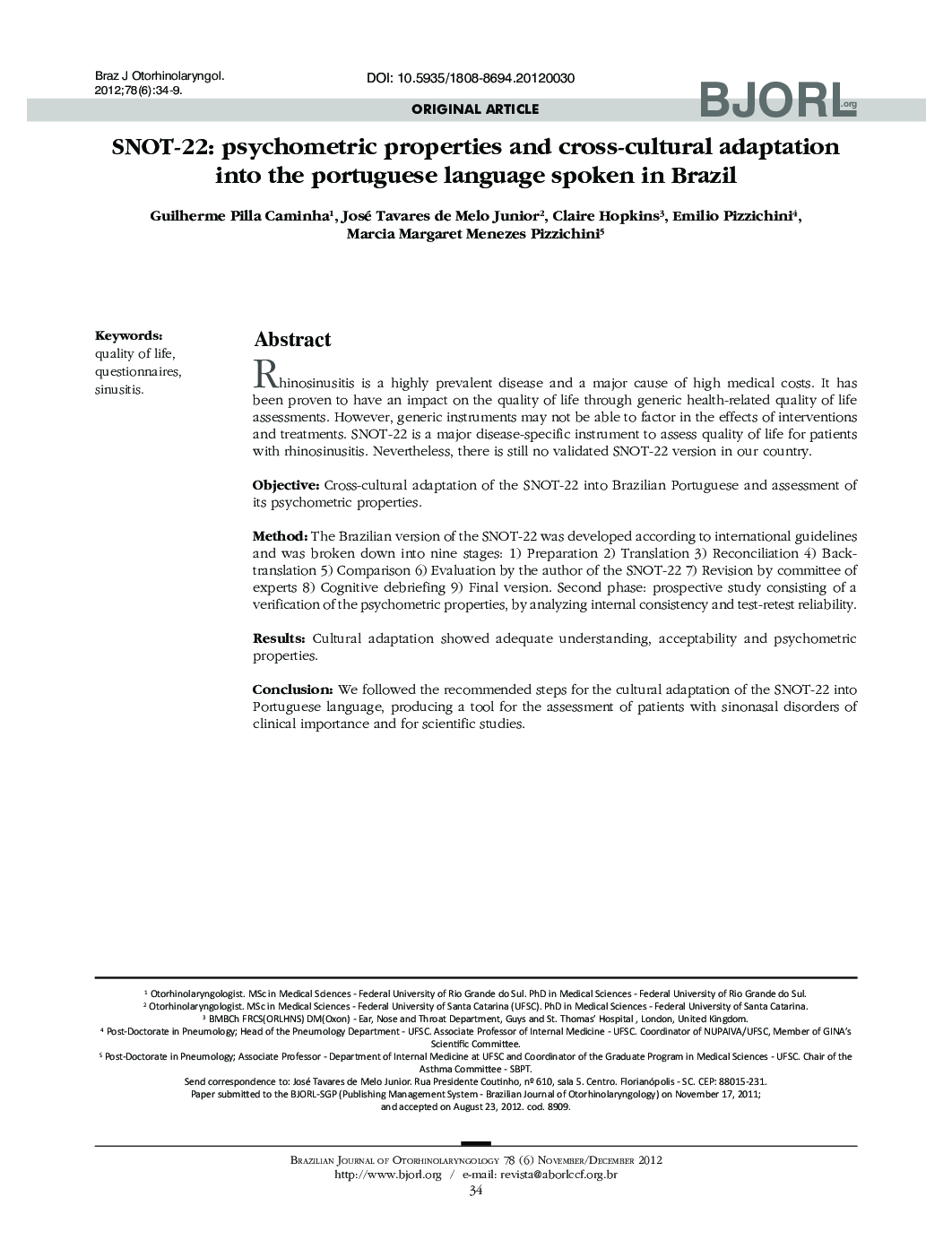| Article ID | Journal | Published Year | Pages | File Type |
|---|---|---|---|---|
| 4107051 | Brazilian Journal of Otorhinolaryngology | 2012 | 6 Pages |
Rhinosinusitis is a highly prevalent disease and a major cause of high medical costs. It has been proven to have an impact on the quality of life through generic health-related quality of life assessments. However, generic instruments may not be able to factor in the effects of interventions and treatments. SNOT-22 is a major disease-specific instrument to assess quality of life for patients with rhinosinusitis. Nevertheless, there is still no validated SNOT-22 version in our country.ObjectiveCross-cultural adaptation of the SNOT-22 into Brazilian Portuguese and assessment of its psychometric properties.MethodThe Brazilian version of the SNOT-22 was developed according to international guidelines and was broken down into nine stages: 1) Preparation 2) Translation 3) Reconciliation 4) Backtranslation 5) Comparison 6) Evaluation by the author of the SNOT-22 7) Revision by committee of experts 8) Cognitive debriefing 9) Final version. Second phase: prospective study consisting of a verification of the psychometric properties, by analyzing internal consistency and test-retest reliability.ResultsCultural adaptation showed adequate understanding, acceptability and psychometric properties.ConclusionWe followed the recommended steps for the cultural adaptation of the SNOT-22 into Portuguese language, producing a tool for the assessment of patients with sinonasal disorders of clinical importance and for scientific studies.
